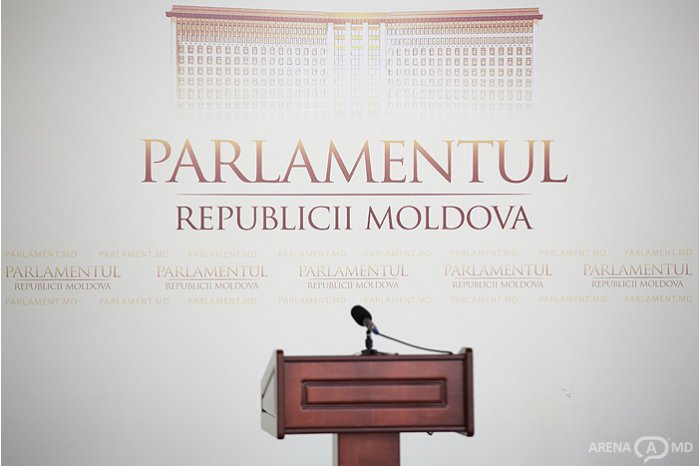Moldovan parliament hosts public discussions on draft law for capital's liberalization, fiscal stimulus
19:42 | 14.12.2016 Category: Official
Chisinau, 14 December /MOLDPRES/ - Capital’s liberalization and fiscal stimulus are just rights and are categorically not compulsory, and the embezzled assets and the means falling under the action of norms on money laundering categorically do not fall under the action of the draft, Parliament Speaker Andrian Candu, one of the authors of the initiative, said at public discussions today, the parliament’s communication and public relations department has reported.
“We are talking about the shadow economy of 70 per cent, but are speaking about the fact that we do not need capital’s liberalization? Do not say that you heard nothing about salaries in envelopes,” Andrian Candu said.
According to Candu, private people will be able to benefit from capital’s liberalization, and for legal entities, the draft sees only fiscal stimulus. The process will take place in two phases:
- Declaring the intention
- Application on liberalization with paying a two-per cent tax.
Capital’s liberalization give private persons possibility to declare and liberalize their capitals, which have not been earlier declared. This relates both to financial means and real estate, stocks and shares, quotas of participation in the capital of limited companies, road transport means, etc. The capital which has earlier not been subject of taxation can be subject to liberalization, thus avoiding the fiscal penalization. In this way, the draft offers unique opportunity to introduce certain assets or financial means in the legal economic circulation, paying a two-per cent tax of the liberalized assets’ sum.
Capital’s liberalization implies:
- declaring the capital which has earlier not been declared
- switching the capital from formal holders to real holders
- showing the real market value of assets for optimizing the structure of assets and subsequent taxation.
As for the fiscal stimulus, it implies, according to the initiative, cancellation of debts to budget in form of penalties, on condition that the sum of the basic debt and the two-per cent tax are paid.
According to the head of the State Tax Inspectorate, Sergiu Puscuta, there is a big difference between fiscal amnesty and fiscal stimulus. The first measure implies cancellation of debts, while the second one means erasing penalties, provided that the debt without interests and penalties is paid. Puscuta said that, presently, 95 per cent of the debtors have debts of up to 10,000 lei, but are burdened with penalties, which cost the state more efforts and resources year after year. “If we allow these economic agents benefit from debts’ cancellation, we would allow them re-launch their work,” Sergiu Puscuta noted.
Justice Minister Vladimir Cebotari said that 70,000 persons are regarded by the integrity package for 2016, and the concerned people must submit declarations on income and wealth which are to be correct and in compliance with the real state. In this situation, capital’s liberalization is an absolutely needed measure, in order to properly implement the integrity package,” the minister said.
The draft law on capital’s liberalization and fiscal stimulus was recorded in parliament on 1 December 2016. The goal of the draft is to improve the investment climate by applying an efficient mechanism of taxing the liberalized capital.
To discuss the provisions of the draft and eventually improve it, by including observations of interested sides, the Moldovan parliament initiated public debates on the draft law on fiscal liberalization and stimulus. Participating in the discussions were the authors of the draft, representatives of the business environment, government, National Anticorruption Centre, Tax Inspectorate, as well as civil society.
(Editor L. Alcaza)

